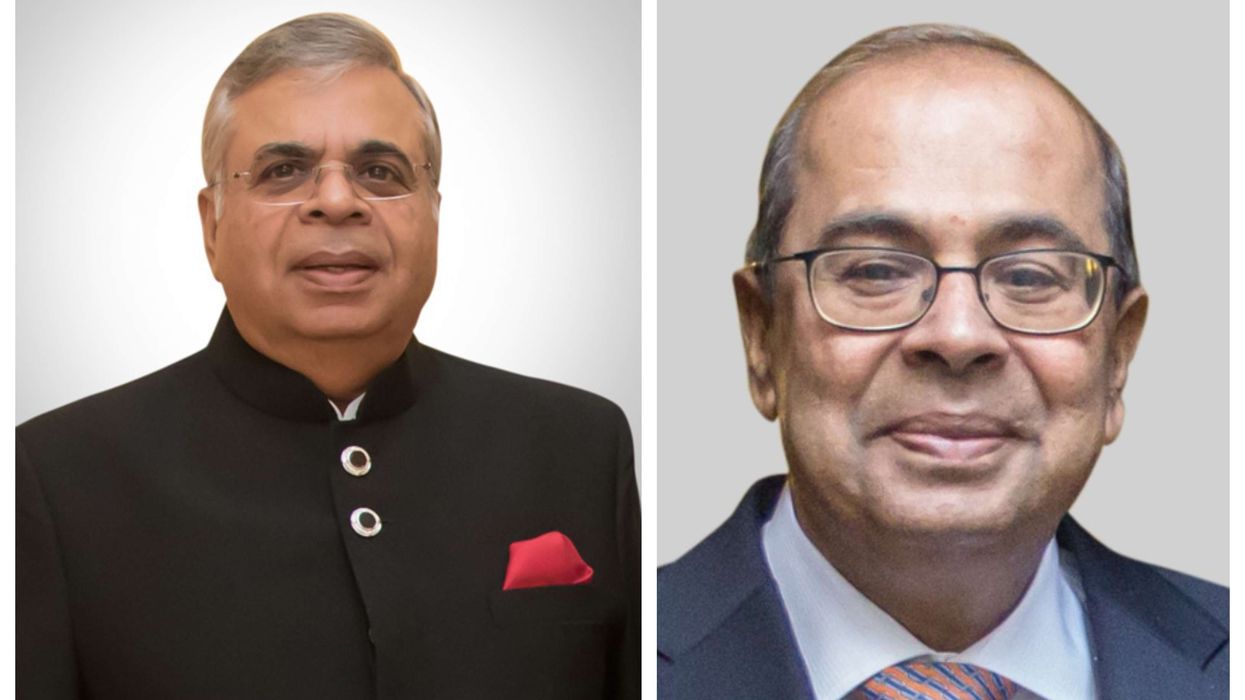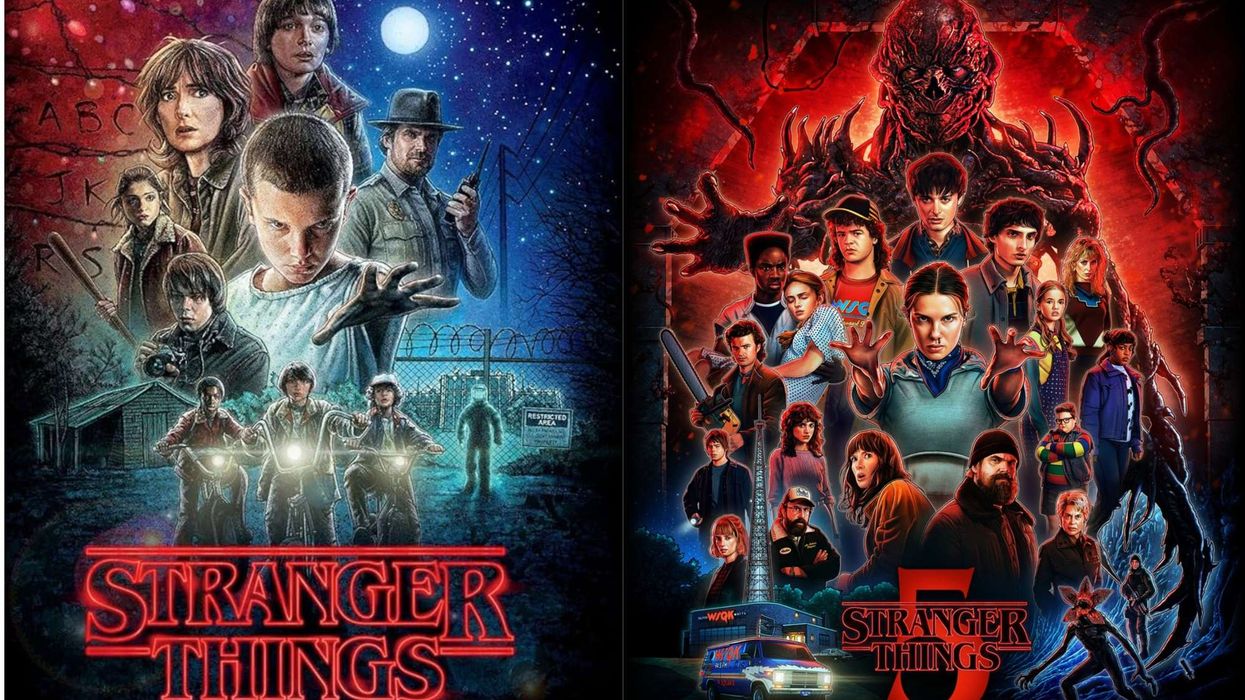THE world of traditional broadcast media is currently being turned on its head by an explosion of digital online content.
Against this backdrop, what do the BBC’s core objectives to ‘inform-educate-entertain’ actually mean in modern, multi-cultural Britain?
This is the key question that the BBC Group commercial director, Bal Samra, wrestles with daily. Speaking to the GG2 Power List, Samra, who has been in his position since 2016, says it’s all about maintaining a delicate balance.
“For a period of time, we have to ride two horses - a broadcasting one and a digital one. We need to ensure that we brilliantly serve all those who use TV as their primary-source medium, alongside investing in the digital explosion. That’s what I’ve been focused on over the last year.”
Samra’s core responsibilities include heading up the corporation’s Commercial, Rights and Business Affairs activities. In addition to managing business relationships with the BBC’s creative partners, he is responsible for intellectual property and commercial deal-making. He oversees more than 1,000 staff and sits on the BBC’s management board.
In line with blending the old with the new - BritBox, a brand-new SVOD (subscription video on demand) service to compete with the likes of Netflix and Amazon, will be launched in the fourth quarter of 2019.
Tapping into a 17 million subscriber SVOD market (where does 17 million come from? Is this total Amazon/Netflix customer base in UK), thought to be worth £6.3 billion and showing 30 per cent year-on-year growth, BritBox will feature a curated archive of the best in British drama, comedy and powerful documentaries.
Co-branded with ITV, the service will be competitively priced at £5.99 per month in HD and across multiple screens. In addition to its archive, BritBox will also commission exclusive original content.
The pipeline of shows pouring into the service will likely be further buttressed by the £180m deal announced in April that will see the BBC take control of UKTV. The multi-channel broadcaster runs 10 free-to-air and pay-tv channels, including Dave and Gold.
One link, further back in the chain, but of pivotal importance moving forwards, is the BBC’s catch-up service iPlayer.
“I was one of the architects of the original iPlayer,” says Samra. “What is coming around the corner is the most profound change in the way people in the UK consume content and we can be a big part of that future story.
“Exploiting the live capability - that’s one thing the BBC has that Netflix and others don’t. We have extraordinary amounts of live content - Wimbledon, the World Cup, Glastonbury, to name but a few. We will bring that to the surface of the iPlayer.
“We’re also thinking about personalisation. When you’ve got so much content, how do you personalise it so that you can deliver it to who you want, when they want it? Eventually, we will have a completely personalised iPlayer.”
He is, of course, only too aware of the changes in viewing habits sweeping across the nation. Technology is only part of the reason, with age and demographics also being key drivers.
“Most young people consume their news online first and, when they think of entertainment, they think about on-demand, they don’t really think about conventional television. Traditional TV or radio are not their day-to-day first choice.
“We need to create content that directly relates to a younger audience and BBC Three is a great example of that. From my perspective, that channel has been our biggest success in connecting to modern young culture. It’s broadening out the people we work with creatively. The content is conventional in long form, but smaller ‘snackable’ clips are also available.”
Samra believes that the BBC is more than capable of leveraging its brand, its reputation for quality and live offerings to ensure that family viewing does not become a thing of the past.
“The biggest numbers for young audiences are always for the big shows. So, like all of us, they still enjoy collective viewing.
“BBC One is still the nation’s favourite. When you look at the viewing figures for England at the Women’s World Cup, or The Bodyguard being the biggest show on television for a decade, you see that people still want to have that collective experience. If you create something that is go-to television, people want to watch it together.”
Principally, as a result of its status as a public service broadcaster, the BBC has a reputation for promoting social and ethnic diversity.
“The BBC is at the forefront of pushing the boundaries here but, talking about the industry more generally, I’m not sure we’re at the stage of this utopian vision where diversity and inclusion is seen as a business advantage.
“The BBC is leading a lot of that, but I suppose nobody is quite there yet. If you’re trying to serve modern Britain and deliver to all these different consumers, why wouldn’t it be an advantage?”
As well as evolving the BBC’s digital strategy, Samra was also one of the key movers behind the organisation’s ‘Compete or Compare’ policy. The protocol now allows third party production houses to bid for BBC tenders. As part of the move, the corporation’s own production house, BBC Studios, was converted into a fully-owned commercial subsidiary.
As well as offering value to the licence payer, the reformed system has allowed BBC Studios to sell its content elsewhere. For example, apocalyptic mini-series Good Omens was produced by BBC Studios, but released on Amazon Prime earlier this year.
Samra grew up in Brick Lane, where his father was involved in the rag trade. The family later moved to the dockside area of Tilbury in Essex, where his qualities as a sports all-rounder, helped him gain acceptance in a predominantly white school.
A former England amateur boxer in his youth, he was accredited with the Advanced Management Programme from Wharton Business School. Prior to joining the BBC, he held Commercial and Finance roles at GEC, Ford and Unilever. He joined the BBC in 1991 and the corporation’s management board in 2007.
He also has non-executive roles on the boards of Freesat, Comic Relief, the National Film and Television School and Ormiston, a thirty-eight school multi-academy trust.
Keeping fit with regular games of five-a-side football, Samra enjoys family life and indeed, family viewing, with wife Fiona and sons Harry and Charlie.







